UNC Loses Ida B. Wells Group to Morehouse:
Action Recalls Tenure Controversy of ’21
Miami’s Richardson Promoted to McClatchy V.P.
Questions Remain on Almaguer’s Paul Pelosi Story
‘To Be Honest, I Don’t Know Who the . . . You Are’
Board Fights Media Narrative on Black Studies Move
Faulty Premise for a Sweeping Headline
MSNBC Is Tops Among Black Cable News Viewers
Arab Americans, Latinos Could See Census Changes
Short Takes: Diversifying N.Y. Times culture section; Roy Wood Jr.; Peter Bhatia; “Middle Eastern or North African” census category? changes in counting Latinos?; “objectivity” with Leonard Downie Jr. and Kevin Merida; Nykia Wright; Chicago Tribune’s mayoral endorsement; Bina Venkataraman; Deborah D. Douglas; Rashida Jones and Hampton University; “Bad Press” film wins at Sundance; “Black in the NFL” podcast; Brazil’s Gloria Maria; Rwanda’s slain John Williams Ntwali
Homepage photo: Nikole Hannah-Jones, co-founder of the Ida B. Wells Society for Investigative Journalism, is joined by Morehouse College journalism department chair Ron Thomas, Adjunct Professor Nicole Carr and students William Lathan, left, Justin Darden and Jalen Brown on Jan. 28 at the National Museum for Civil and Human Rights in Atlanta. (Credit: Morehouse College)
[btnsx id=”5768″]
Donations are tax-deductible.
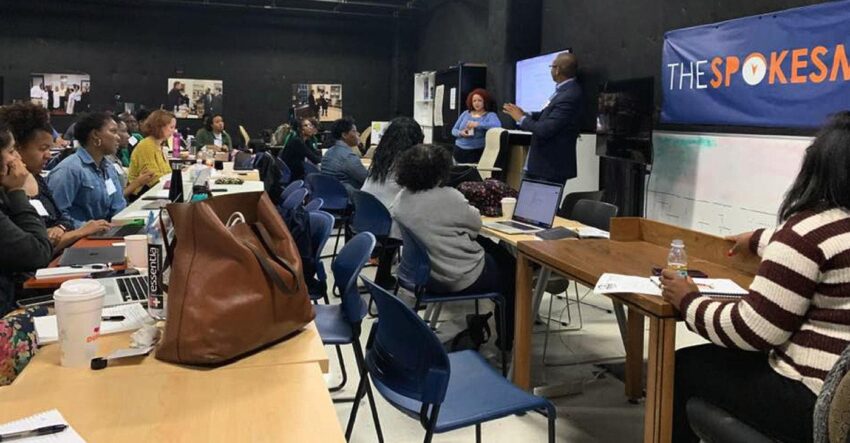
Action Recalls Tenure Controversy of ’21
The Ida B. Wells Society for Investigative Journalism, dedicated to bringing diversity to investigative reporting, is moving from the University of North Carolina-Chapel Hill to Morehouse College in Atlanta.
“The move comes after the controversy over the university’s board of trustees denying one of the society’s founders, Pulitzer Prize-winning journalist Nikole Hannah-Jones, a vote on tenure after the university courted her to join its faculty,” as Joe Killian reported Thursday for NC Policy Watch.
“Intense pressure from students, faculty, staff and alumni as well as some of the top names in journalism from around the country, forced a tenure vote on the university’s board of trustees. Though the board ultimately offered her tenure, Hannah-Jones decided instead to take a position at Howard University. There she created the new Center for Democracy and Journalism at one of the nation’s most prestigious Historically Black Colleges and Universities (HBCUs).
“The university reached a settlement with Hannah-Jones last year.
“ ‘I am very excited to announce that Morehouse College will be the new home of the Ida B. Wells Society,’ Hannah-Jones said in a statement released by Morehouse. ‘This partnership helps our young organization settle more deeply into our mission, which is to increase the number of investigative reporters of color. Being located on the campus of a historically Black college located in Atlanta in proximity to other HBCUs and coming to Morehouse just as it gets its journalism major off the ground provides a tremendous opportunity for us to increase our impact on the field and society.’ ”
The Morehouse announcement added, “Founded in 2007 with a generous grant from alumnus Spike Lee ’79 and the late pioneering Black sports columnist Ralph Wiley, the Journalism and Sports program became an official degree-granting major in July of 2021, offering a Bachelor of Arts in Journalism in Sports, Culture and Social Justice.
“Students participate in foundational courses such as news writing, sports reporting, multimedia and visual storytelling, and mass media law. Allied with the Society, both entities share the belief that investigative reporting can help reporters go beyond the headlines to find the stories that define current issues and problems.
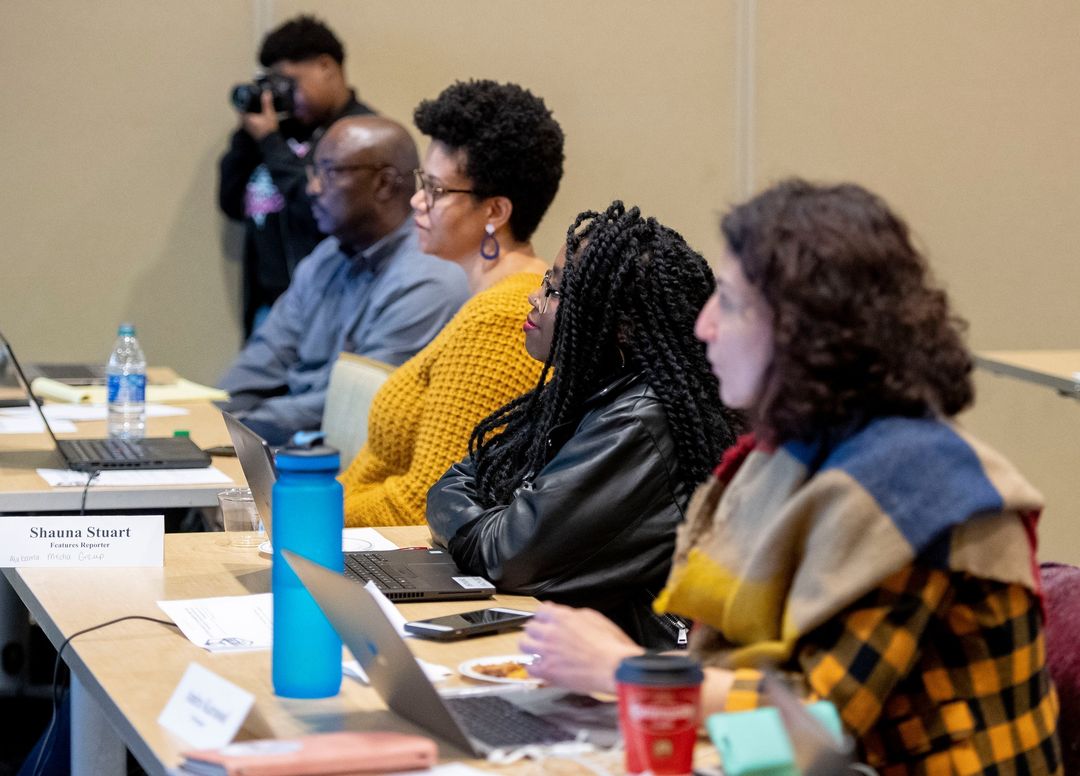 “Through the partnership, students will be educated about advanced technology, open records laws, advanced interviewing techniques, fact checking, backgrounding, data reporting, finding government data, story pitching, organizing projects, and following paper trails. The partnership also will teach students how to write compelling investigative narratives as well as provide guest lectures, career development opportunities, educational programs, and general support. (Photo: At Alabama State University in 2020)
“Through the partnership, students will be educated about advanced technology, open records laws, advanced interviewing techniques, fact checking, backgrounding, data reporting, finding government data, story pitching, organizing projects, and following paper trails. The partnership also will teach students how to write compelling investigative narratives as well as provide guest lectures, career development opportunities, educational programs, and general support. (Photo: At Alabama State University in 2020)
“ ‘Our journalism program intentionally tries to fill the gaps in media that rarely are populated by Black reporters and editors,’ said Ron Thomas, chair of the Morehouse Journalism in Sports, Culture and Social Justice department. “Investigative reporting is one of those areas in which Black faces are seldom seen . . . .”
Killian continued, “In an email to faculty at UNC-Chapel Hill’s journalism school, Dean Raul Reis said the school was grateful for the opportunity to have worked with the society since 2019.
“ ‘Carolina is committed to an inclusive and equitable community for all,’ Reis said in the Thursday e-mail. ‘We look forward to the future work of the Society and wish their team all the best.’
“Last year the Accrediting Council on Education in Journalism and Mass Communications (ACEJMC) demoted UNC-Chapel Hill’s Hussman School of Journalism and Media to ‘provisional’ status, finding the school fell short of its standards for diversity, equity, and inclusion. The school was given two years to resolve the problem before officially losing its accreditation. . . .”
Separately, The Washington Post’s Style section published an unusual 3,100-page piece by former Post reporter Wesley Lowery about, as Lowery put it on social media, “a friend of mine, the 1619 Project, the role of journalists as historians, and who gets to frame the American story.”
- Meredith Blake, Los Angeles Times: Why ‘The 1619 Project’ creator is ‘proud’ to have ‘enemies’ in Donald Trump, Ron DeSantis (Jan. 26)
- Jake Silverstein, New York Times Magazine: The 1619 Project and the Long Battle Over U.S. History (Nov. 9, 2021, updated Nov. 12)
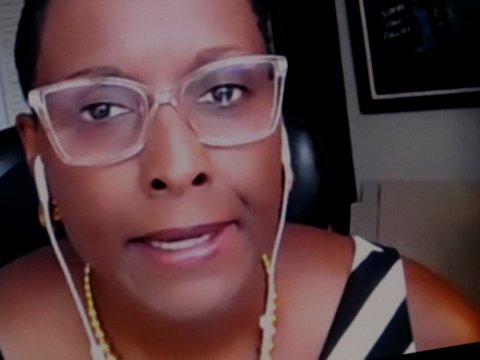
Miami’s Richardson Promoted to McClatchy V.P.
“Monica Richardson, executive editor of the Miami Herald and el Nuevo Herald, has been named vice president of news for large markets for parent company McClatchy,” the Herald reported Wednesday.
“Richardson will oversee all news operations for McClatchy’s six largest newsrooms, including the Herald. Kristin Roberts, McClatchy’s chief content officer, made the announcement Wednesday.
“In a memo to the company, Roberts said having Richardson in this new role ensures ‘that we achieve the highest ambitions of local journalism, extend our unmatched record of audience growth and establish our newsrooms as the preeminent local media brands.’
“Richardson joined the Miami Herald two years ago, and supervised the Herald’s Pulitzer Prize-winning coverage of the Surfside condo collapse. As Florida regional editor, she also has overseen the Bradenton Herald newsroom on Florida’s Gulf Coast.
“ ‘From a Pulitzer Prize to organizing on-the-spot trauma sessions for journalists working the Surfside condo collapse and her focus on innovation and strengthening community engagement efforts, Monica has paired compassion and commitment with experience and skill to become a leader who embodies the best of our profession,’ Roberts said in her announcement.
“In her new role, Richardson will oversee newsrooms in Florida, Missouri, California, North Carolina and Texas. The senior editors in each of the six large-market newsrooms will report to her.
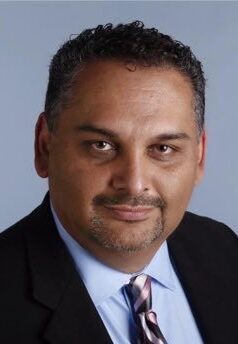 “Herald Managing Editor Alex Mena (pictured) has been named interim executive editor of the Miami Herald and el Nuevo Herald.
“Herald Managing Editor Alex Mena (pictured) has been named interim executive editor of the Miami Herald and el Nuevo Herald.
“Mena, who has been with the Herald for more than 25 years, has been involved in nearly every part of newsroom operations, including sports and production.
“Roberts said the company will conduct a national search for a new executive editor for the Miami Herald and el Nuevo Herald.”

Questions Remain on Almaguer’s Paul Pelosi Story
“Newly released bodycam video of the October attack on Paul Pelosi sheds light on what appeared to be right and wrong with the NBC News report that was mysteriously retracted last year,” Brian Flood reported Jan. 27 for Fox News.
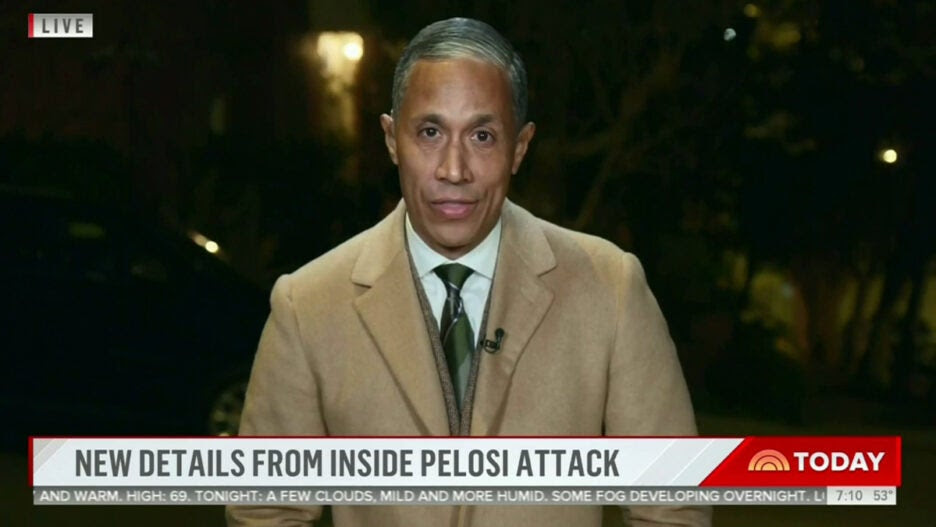 “NBC News reporter Miguel Almaguer (pictured) went viral days after the attack when he implied Pelosi, husband of former House Speaker Nancy Pelosi, might not have been in immediate danger when police arrived at his San Francisco home the night he was assaulted by suspect David DePape. Almaguer’s report contradicted the mainstream narrative and was quickly scrubbed from the internet by NBC News without an explanation aside from a brief line about it not meeting standards.
“NBC News reporter Miguel Almaguer (pictured) went viral days after the attack when he implied Pelosi, husband of former House Speaker Nancy Pelosi, might not have been in immediate danger when police arrived at his San Francisco home the night he was assaulted by suspect David DePape. Almaguer’s report contradicted the mainstream narrative and was quickly scrubbed from the internet by NBC News without an explanation aside from a brief line about it not meeting standards.
“Almaguer was then vanished from NBC News for several weeks, but the network refused to confirm he was suspended with an on-the-record comment, and media insiders were baffled by NBC News’ lack of transparency on the issue. . . .
“NBC News did not respond to a series of questions, and it remains unclear what portion of Almaguer’s piece resulted in it being retracted, or if the network felt the tone around a sensitive topic was misleading. . . .”
Josh Dickey added for The Wrap, “In lieu of comment, NBC News referred TheWrap to the note originally published with the retracted story: ‘Editor’s note: This piece has been removed from publication because it did not meet NBC News reporting standards.’ ”
“Which, to be fair, may have been very much true at the time.
“Almaguer’s original reporting did not indicate that he, or anyone at NBC News, had seen the footage; though it did at one point cite ‘court documents,’ the report did not specify whether those documents had been obtained by NBC, or if its details from court records were being relayed second-hand. . . .”
- Lee Moran, HuffPost: Chris Hayes Names And Shames Right-Wingers Who Pushed False Pelosi Smears
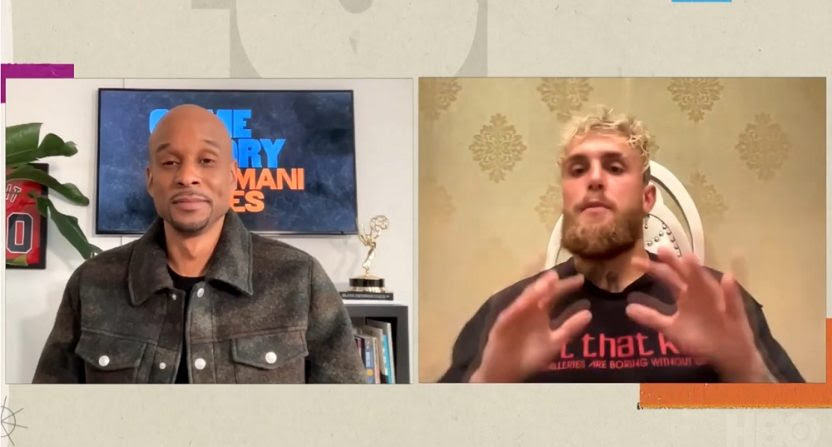
Perhaps Jake Paul, right, does not watch much sports television and never saw Bomani Jones before, but the two put on an incredible performance taking jabs back and forth with one another, Luke Kane wrote for Mediaite.
‘To Be Honest, I Don’t Know Who the . . . You Are’
“Jake Paul and Stephen A. Smith are going to be guests on Friday night’s edition of Game Theory with Bomani Jones on HBO, and the network released a brief clip of Jones’ interview with Paul,” Joe Lucia reported Thursday for Awful Announcing.
“Jones asked Paul what happens if he loses one of his fights, and Paul did not respond favorably to the question.
“Jones: After Tommy Fury, where do you go from there? What happens if you lose one of these fights?
“Paul: I don’t plan on losing. I don’t train to lose. I feel like that’s probably your mindset. A lot of people try to project their mindsets…
“Jones: Ain’t no projecting of a mindset. My question is, this is work because we’re all surprised that you keep winning these fights, right? But if somebody does beat you, how much interest stays in this when it stops being surprising?
“Paul: They won’t. And I’m gonna be honest bro, I don’t know who the fuck you are. My PR team set up this interview.
“Jones: Dude, all I know about you is that people don’t like you.”
On Wednesday, David Coleman and Brandi Waters of the College Board joined co-anchor Geoff Bennett on the “PBS NewsHour” to discuss the Advanced Placement course on African American Studies and the controversy. (Credit: PBS/YouTube.)
Board Fights Media Narrative on Black Studies Move
The College Board is defending the latest version of its Advanced Placement course on African American Studies, saying it had nothing to do with politics, but the predominant media narrative is that it did.
“The College Board Strips Down Its A.P. Curriculum for African American Studies,” reads a New York Times online headline. “After heavy criticism from Gov. Ron DeSantis, the College Board released on Wednesday an official curriculum for its new Advanced Placement course in African American Studies — stripped of much of the subject matter that had angered the governor and other conservatives.”
Cheyanne M. Daniels wrote for The Hill, “The College Board on Wednesday released a revised version of an Advanced Placement African American studies course following criticism from Florida Gov. Ron DeSantis (R), who refused to allow the program to run in the state’s schools. In a new framework for the course reviewed by The Hill, Black writers and scholars associated with critical race theory have been scrubbed from the curriculum, as have those who touch on the Black queer experience and Black feminism.
“Other topics, like Black Lives Matter, are now optional. The Board also added ‘Black conservatism’ as a potential research topic.
“David Coleman, CEO of the College Board, told The New York Times that these changes were not made to bow to political pressure. ‘At the College Board, we can’t look to statements of political leaders,’ Coleman said. The changes, he said, came from ‘the input of professors’ and ‘longstanding A.P. principles.’ But last week, when changes were first announced, DeSantis’s administration took credit for the move. . . .”
On NPR, Mary Louise Kelly asked Coleman and Brandi Waters, the board’s director of Advanced Placement African American Studies, “For people trying to follow all this, let me just put a basic question, a yes or no question, and you can each take it. Was the curriculum changed to appease Governor DeSantis or other critics who have accused the College Board of being woke, yes or no?
“COLEMAN: No.
“WATERS: Absolutely not.
“KELLY: If I may just push you on this one more time, to those who look at the changes and how they track very closely to the changes that Ron DeSantis was arguing for, it’s a coincidence?
“COLEMAN: Let me try to explain. What was attacked were secondary sources and all the secondary sources. What was not discussed in all the political commentary was the core facts and evidence of the course. Everyone’s in agreement. It seems that that was brilliantly handled.
“There were some commentators that were attacked, but those were all part of secondary sources we never list. We took out all the secondary sources, including ones that never got comment ’cause we don’t do it in any AP course. . . .”
Coleman also said, “There are time stamps. There’s clear evidence. So it is simply false that the changes were made after [the criticism], so just so we don’t get confused.”
On the “PBS NewsHour” Friday, Jonathan Capehart sided with the College Board, but denounced DeSantis.
“We’re talking about academics, not politicians,” Capehart said. “I mean, these sorts of things happen in academia all the time. Just because you write a book, just because you teach a course, just because you have written an important article that was big in the social discussion doesn’t automatically mean that it needs to be taught in a classroom. And I know I’m going to get in trouble with a lot of people.
“But I want to pull the camera, the aperture back here. What Ron DeSantis is doing is deeply, deeply insulting. What he’s basically saying to the nation and to African Americans, in particular, it’s that your role in the building of this country, the maintenance of this country means nothing, that, without you, we could have gotten along just fine. . . .”
- Zeeshan Aleem, MSNBC: Ron DeSantis’ assault on free thought
- Nick Anderson, Washington Post: College Board faces storm of criticism over AP African American studies
- Mary C. Curtis, Roll Call: The insidious power of keeping it vague (Jan. 26)
- History News Network: 600 African American Studies Faculty Sign Open Letter in Defense of AP African American Studies
- Editorial, Chicago Sun-Times: Let the College Board do its job on African American Studies
- Roy S. Johnson, al.com: In your quest to climb, Gov. DeSantis, stop stepping on Black people
- Janai Nelson, New York Times: Ron DeSantis Wants to Erase Black History. Why?
- Organization of American Historians, History News Network: Statement on AP African American Studies
- Clarence Page, Chicago Tribune: Can Black History Month survive Gov. Ron DeSantis’ ‘anti-woke’ politics? (Jan. 25)
- Eugene Robinson, Washington Post: It’s not American history without Black history
- Tina Sfondeles, Chicago Sun-Times: Pritzker: Don’t change high school AP course to appease DeSantis and ‘Florida’s racist and homophobic laws’ (Jan. 25)
- Keeanga-Yamahtta Taylor, New Yorker: The Meaning of African American Studies
- Nicole Tucker-Smith, Word in Black: Psst, College Board: we see you’re not defending AP African American Studies
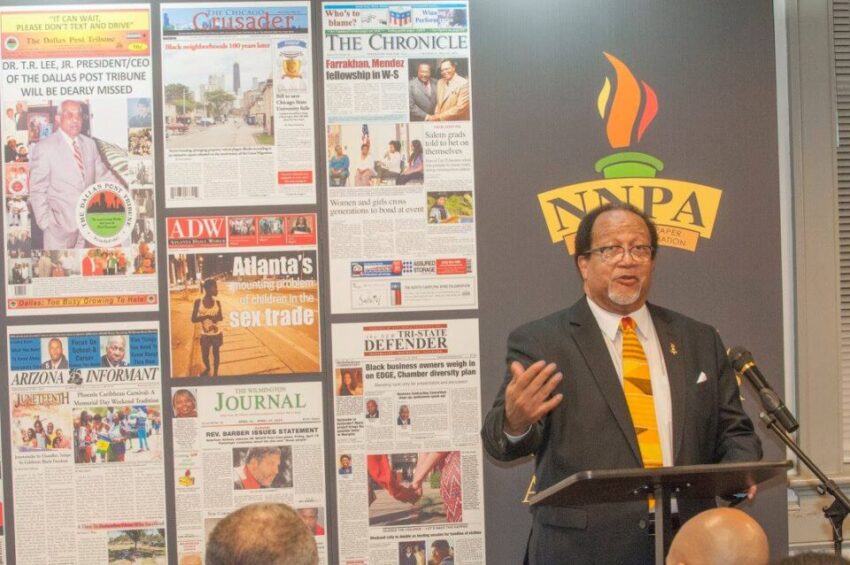
Faulty Premise for a Sweeping Headline
Splashed across the home page of blackpressusa.com, a project of the National Newspaper Publishers Association that features stories subsequently used by Black newspapers nationwide, is the headline “While Black Newspapers Reveal Serial Rapists, Mainstream Turns to Comedy.”
The references are to stories in the nonprofit digital-only startup the Kansas City Defender that a serial killer was targeting Black women and girls, and by the website Samafor, which reported that CNN “could fill the primetime 9 to 11 p.m. hours with a nontraditional version of the news, five people familiar with the planning said.” No sources were identified by name.
Stacy M. Brown wrote Jan. 29 that “The latest news is that CNN, which once held itself as the leader in cable news, is looking for a comedian to fill its crucial 9 p.m. to 11 p.m. time slot.”
Brown’s point was that “critical news about people of color is only found in the Black Press,” while the mainstream media, with CNN as his exhibit, was turning to comedy.
But in an on-the-record, source-named interview published the next day in the Los Angeles Times, Stephen Battagilo asked Chris Licht, chairman and CEO of CNN Worldwide, whether it was true that “you’re looking to do some type of topical comedy show in prime time.”
Licht replied, “No. I worked on a comedy show. And it took over 200 people to produce an actual comedy show. So no, I would not be so foolish as to, in one fell swoop, hurt the brand of comedy and news by trying to do a comedy show on CNN.”
- Kansas City Defender: KC Defender Founder, Ryan Sorrell, Receives MLK Community Service Award During SCLC 2023 Mass Celebration
- Gene Meyer: The Attribution Scam. Where Are Standards?


MSNBC Is Tops Among Black Cable News Viewers
“Among Black Americans, MSNBC was the #2 most-watched cable network in January (behind ESPN),” MSNBC announced Thursday, citing January Nielsen ratings.
“MSNBC averaged 173K Black viewers (ahead of CNN’s 115K and FOX News’ 20K), ranking #1 among cable news networks for the 24th consecutive month. MSNBC is home to the 10 highest-rated cable news programs among Black Americans.
“ ‘The ReidOut’ has been the most-watched cable news program among Black Americans for four straight months (and 19 of the past 24). Across all of cable, MSNBC had two of the Top 10 programs among Black viewers in January: ‘The ReidOut’ (#7) and ‘The Rachel Maddow Show’ (#9). In addition, ‘Morning Joe’ was the #1 cable program in its time slot among Black viewers.”

Arab Americans, Latinos Could See Census Changes
“A Middle Eastern and North African category could be added to U.S. federal surveys and censuses, and changes could be made to how Hispanics are able to self-identify, under preliminary recommendations released Thursday by the Biden administration in what would be the first update to race and ethnicity standards in a quarter century,” Mike Schneider reported Jan. 26 for the Associated Press.
“Other proposed changes include eliminating the use of certain outdated and offensive terminologies, as well as discontinuing the use of the terms ‘majority’ and ‘minority,’ ” Samantha Artiga and Drishti Pillai reported Monday for the Kaiser Family Foundation.
In 2020, the National Association of Hispanic Journalists declared, “For decades, the term ‘minority’ has been used to refer to groups of people that are outnumbered by non-Hispanic whites — a word that for too long has perpetuated an ‘us vs. them’ narrative.”
Schneider continued, “The federal government’s standards haven’t been changed since 1997, two decades after they were created as part of an effort to collect consistent race and ethnicity data across federal agencies when handling censuses, federal surveys and application forms for government benefits.”
John Mason wrote Wednesday for Arab America, “Under President Obama, in 2015, a question for the 2020 U.S. Census Bureau survey included the identification of a respondent as ‘Middle Eastern or North African’ (MENA). Importantly, MENA as a response would not be aggregated to the much broader ‘White’ category. The Trump administration killed the question. In 2022, some Congress members requested renewal of the MENA category for the 2030 Census. Pro-Arab sentiment about the importance of the MENA tag is, captured as follows, ‘It’s like we always say, “White without the privilege.” We’re counted as white, but we’ve never had the privilege that comes with it.’ . . .”
Meanwhile, “Among the Hispanic population, the share who were identified as some other race grew from 28% to 35% between 2010 and 2021, and there was a ten-fold jump in the share reported as multiracial, from 4% to 44%. During this period, the share of Hispanic people identified as White plummeted from 64% to 16%,” Artiga and Drishti Pillai reported for Kaiser.
Schneider wrote for the AP, “Some advocates have been pushing for combining the race and Hispanic origin questions, saying the way race is categorized often confuses Hispanic respondents who are not sure how to answer. Tests by the Census Bureau in the 2010 census showed that combining the questions yielded higher response rates.”
In 2014, the revelation that more Hispanics were identifying as white on the census forms prompted such pieces as “Who and What the Hell Is a White Hispanic?”
Short Takes
- New York Times senior editor Lorne Manly “will lead a new program to recruit, edit and publish criticism from writers from underrepresented backgrounds who have little to no experience contributing to the Culture section of The Times,” the Times announced Thursday. “The one-year program, funded by Critical Minded, aims to build rapport between Times editors and new voices in cultural criticism so that those critics are called on more regularly to contribute to national publications. . . .”
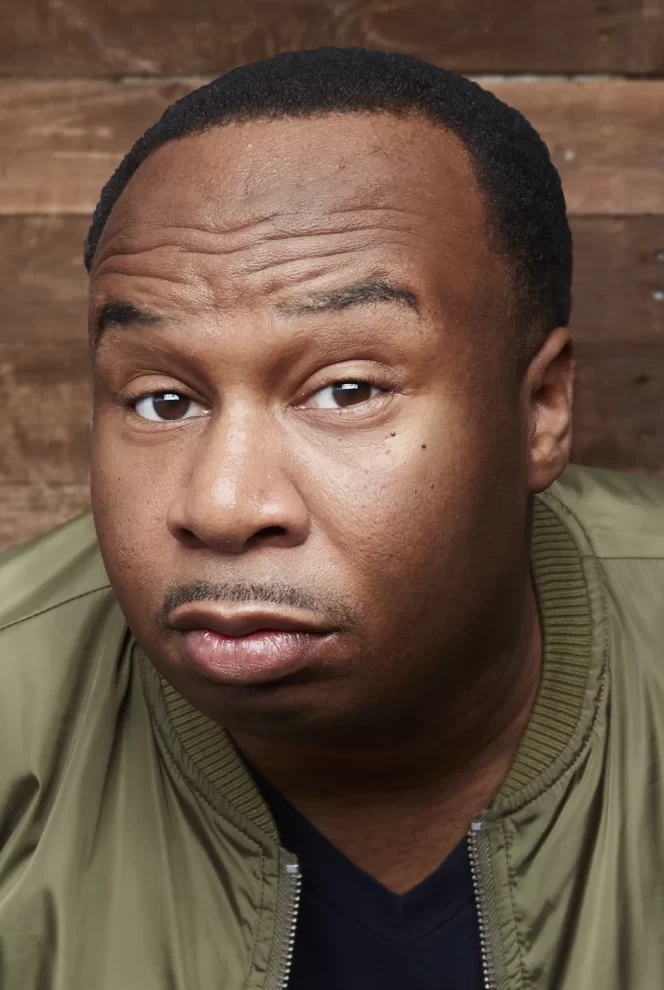 “Roy Wood Jr. (pictured), the comedian known for his role on Comedy Central’s ‘The Daily Show,’ will be the entertainer at the 2023 White House Correspondents’ Dinner, the association announced Thursday,“ Oliver Darcy reported for CNN. The dinner is April 29. “Tamara Keith, president of the White House Correspondents’ Association, said that Wood, who holds a degree in broadcast journalism, will bring ‘a journalistic eye to his comedy. He’s hilarious – but also makes sure his audiences are thinking as they laugh,’ Keith said. ‘My aim with this year’s dinner is to lift up the importance of a free and independent press to a functioning democracy, so I am thrilled to be able to feature a comedian who gets what journalism is all about.’ ”
“Roy Wood Jr. (pictured), the comedian known for his role on Comedy Central’s ‘The Daily Show,’ will be the entertainer at the 2023 White House Correspondents’ Dinner, the association announced Thursday,“ Oliver Darcy reported for CNN. The dinner is April 29. “Tamara Keith, president of the White House Correspondents’ Association, said that Wood, who holds a degree in broadcast journalism, will bring ‘a journalistic eye to his comedy. He’s hilarious – but also makes sure his audiences are thinking as they laugh,’ Keith said. ‘My aim with this year’s dinner is to lift up the importance of a free and independent press to a functioning democracy, so I am thrilled to be able to feature a comedian who gets what journalism is all about.’ ”
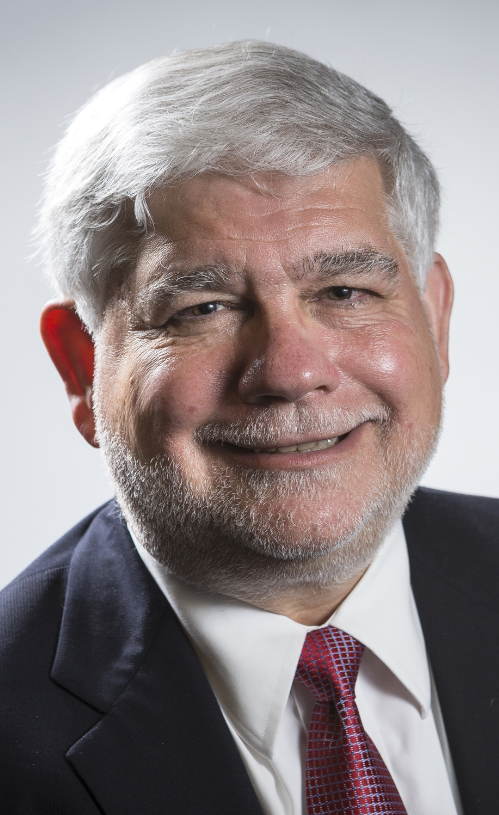 “The Detroit Free Press’ former top editor, Peter Bhatia (pictured), is the new CEO of a nonprofit digital news service in Houston after leaving the Detroit newspaper last month,” Breana Noble reported Thursday for the Detroit News. “Bhatia’s departure came under the threat of up to 14 layoffs at the Free Press as owner Gannett Inc. took cost-cutting measures in response to a deteriorating macroeconomic environment, the newspaper reported in December. He was one of eight employees to take a voluntary severance, which allowed the paper to avoid forced layoffs. . . . The Houston Landing is an independent, nonpartisan and nonprofit news organization covering Houston and its surrounding region with a focus on investigative journalism, according to its website. . . .”
“The Detroit Free Press’ former top editor, Peter Bhatia (pictured), is the new CEO of a nonprofit digital news service in Houston after leaving the Detroit newspaper last month,” Breana Noble reported Thursday for the Detroit News. “Bhatia’s departure came under the threat of up to 14 layoffs at the Free Press as owner Gannett Inc. took cost-cutting measures in response to a deteriorating macroeconomic environment, the newspaper reported in December. He was one of eight employees to take a voluntary severance, which allowed the paper to avoid forced layoffs. . . . The Houston Landing is an independent, nonpartisan and nonprofit news organization covering Houston and its surrounding region with a focus on investigative journalism, according to its website. . . .”
- “I and former CBS News president Andrew Heyward, a colleague at Arizona State University’s Walter Cronkite School of Journalism, investigated the values and practices in mainstream newsrooms today, with a grant from the Stanton Foundation,” Leonard Downie Jr., former executive editor at the Washington Post, wrote for the Post Monday. “What we found has convinced us that truth-seeking news media must move beyond whatever ‘objectivity’ once meant to produce more trustworthy news. We interviewed more than 75 news leaders, journalists and other experts in mainstream print, broadcast and digital news media, many of whom also advocate such a change. This appears to be the beginning of another generational shift in American journalism. . . .”
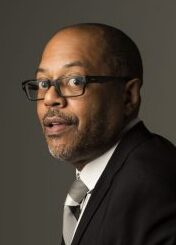 “. . . At the Los Angeles Times, [Executive Editor] Kevin Merida (pictured) is open to the possibility that reporters might cover issues on which they actively engage, Downie also wrote. ” ‘We’re trying to find that line,’ he said. “We’re trying to create an environment in which we don’t police our journalists too much. Our young people want to be participants in the world.”
“. . . At the Los Angeles Times, [Executive Editor] Kevin Merida (pictured) is open to the possibility that reporters might cover issues on which they actively engage, Downie also wrote. ” ‘We’re trying to find that line,’ he said. “We’re trying to create an environment in which we don’t police our journalists too much. Our young people want to be participants in the world.”
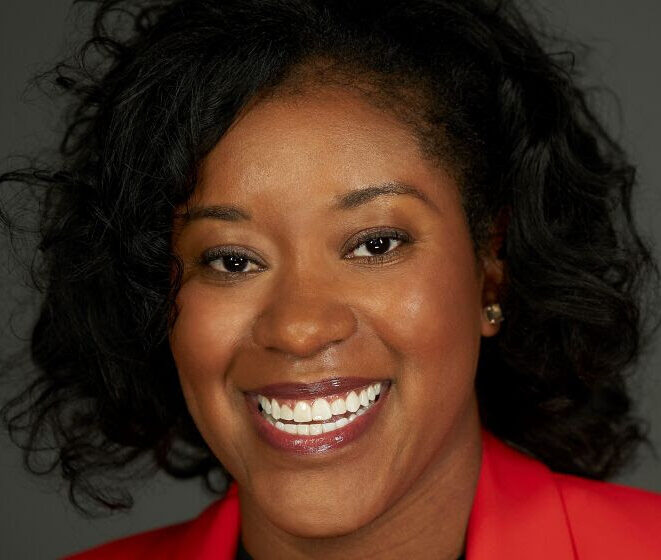 “Nykia Wright (pictured), who has had leading executive roles at the Chicago Sun-Times since 2017, managing ownership changes and a shift toward digital operations, is leaving the newspaper,” David Roeder reported Monday for the Sun-Times. “Chicago Public Media, which owns the Sun-Times, announced her departure Monday. Wright issued a message to staff members saying she will announce future plans soon. . . .”
“Nykia Wright (pictured), who has had leading executive roles at the Chicago Sun-Times since 2017, managing ownership changes and a shift toward digital operations, is leaving the newspaper,” David Roeder reported Monday for the Sun-Times. “Chicago Public Media, which owns the Sun-Times, announced her departure Monday. Wright issued a message to staff members saying she will announce future plans soon. . . .”
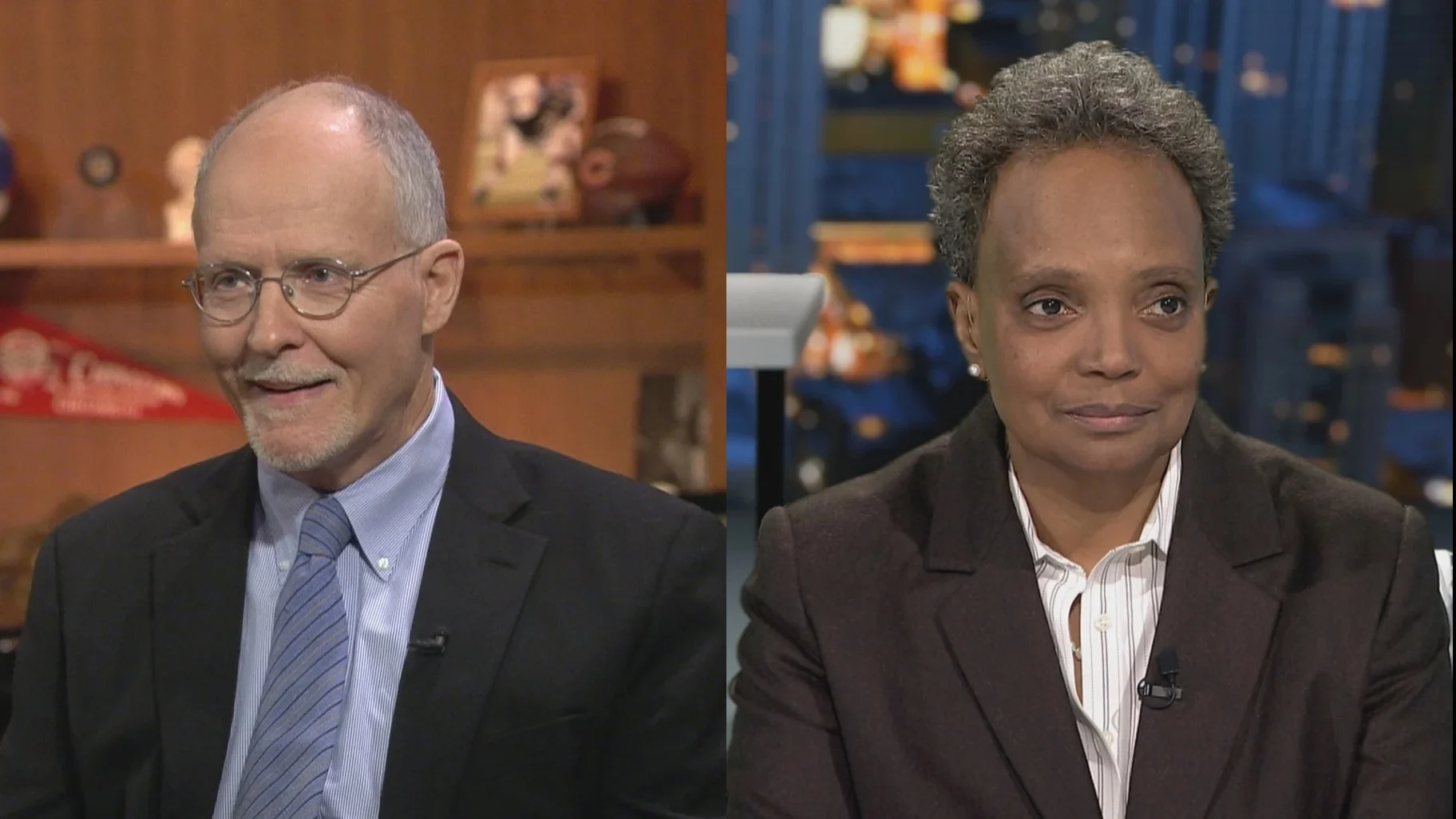 “The Chicago Tribune editorial board made their long-awaited endorsement in the upcoming mayoral election on Friday, backing former Chicago Public Schools CEO Paul Vallas (pictured) for the city’s top job,” WMAQ in Chicago reported. “The board added that incumbent Mayor Lori Lightfoot (pictured) is their second choice and the candidate they feel should face Vallas in a potential runoff election. . . . The board touched on a recent Harris poll that noted many Chicagoans are pessimistic about the state of the city following an election season, highlighting the fears many have regarding public safety, as homicides reached the highest level in decades in 2021. . . .” More from Politico
“The Chicago Tribune editorial board made their long-awaited endorsement in the upcoming mayoral election on Friday, backing former Chicago Public Schools CEO Paul Vallas (pictured) for the city’s top job,” WMAQ in Chicago reported. “The board added that incumbent Mayor Lori Lightfoot (pictured) is their second choice and the candidate they feel should face Vallas in a potential runoff election. . . . The board touched on a recent Harris poll that noted many Chicagoans are pessimistic about the state of the city following an election season, highlighting the fears many have regarding public safety, as homicides reached the highest level in decades in 2021. . . .” More from Politico
 “Bina Venkataraman (pictured), who has been editorial page editor and editor at large at the Boston Globe, has joined The Washington Post as a columnist on the future, the Post says.
“Bina Venkataraman (pictured), who has been editorial page editor and editor at large at the Boston Globe, has joined The Washington Post as a columnist on the future, the Post says.
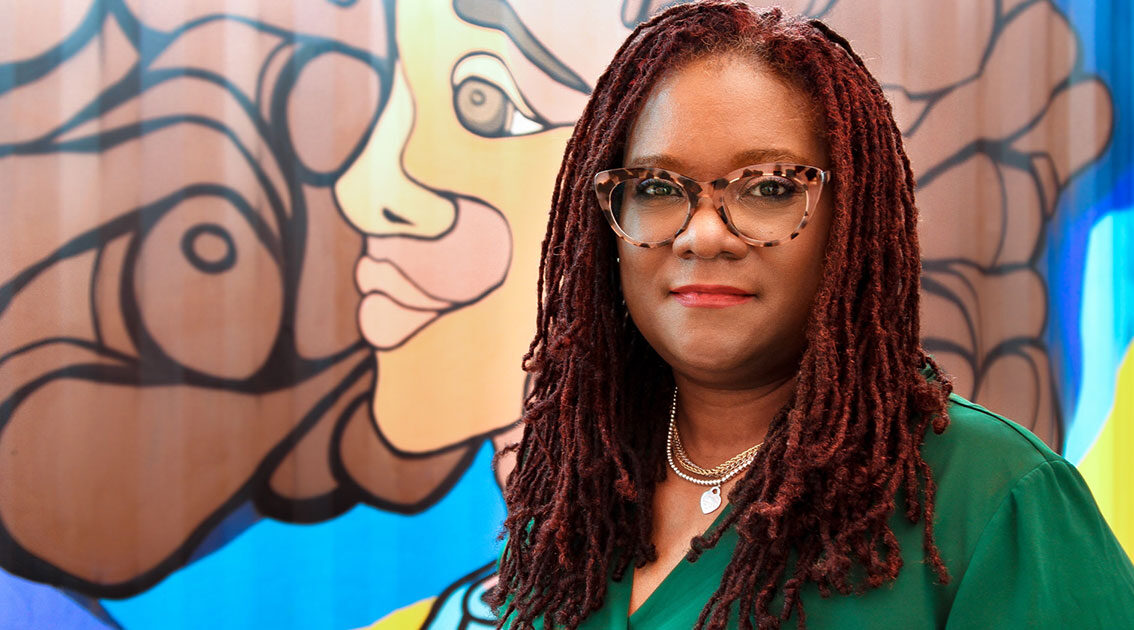 “Deborah D. Douglas (BSJ89) (pictured), the co-editor in chief of The Emancipator and an award-winning journalist and educator with deep Chicago roots, has been named director of the new Midwest Solutions Journalism Hub at the Medill School of Journalism, Media, Integrated Marketing Communications at Northwestern University,” the school announced Jan. 27. “Douglas will begin work next month overseeing the Hub, which will provide training programs for newsrooms, educators and students in the craft of solutions journalism. The Hub will also launch a speaker series and a newsletter focused on best practices in solutions journalism, an approach that applies rigorous reporting about responses to systemic problems. . . .”
“Deborah D. Douglas (BSJ89) (pictured), the co-editor in chief of The Emancipator and an award-winning journalist and educator with deep Chicago roots, has been named director of the new Midwest Solutions Journalism Hub at the Medill School of Journalism, Media, Integrated Marketing Communications at Northwestern University,” the school announced Jan. 27. “Douglas will begin work next month overseeing the Hub, which will provide training programs for newsrooms, educators and students in the craft of solutions journalism. The Hub will also launch a speaker series and a newsletter focused on best practices in solutions journalism, an approach that applies rigorous reporting about responses to systemic problems. . . .”
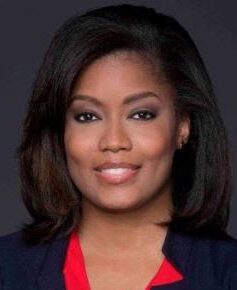 “Hampton University’s Scripps Howard School of Journalism & Communications alumna and MSNBC President Rashida Jones (pictured) headlines the school’s distinguished alumni, as SHSJC prepares for its 20th-year anniversary celebration on Feb. 10,” Dean Julia A. Wilson announced Friday. “The celebration commemorates the $10 million donation in 2002 from the Scripps Howard Foundation. . . . Dean Wilson will present SHSJC’s coveted Achievement of Excellence Award to Jones, a 2002 graduate, while 2011 alumna Jessi Mitchell of WCBS-New York and 2008 alumnus Justin Tinsley of ESPN will be inducted into the school’s Hall of Fame. . . .”
“Hampton University’s Scripps Howard School of Journalism & Communications alumna and MSNBC President Rashida Jones (pictured) headlines the school’s distinguished alumni, as SHSJC prepares for its 20th-year anniversary celebration on Feb. 10,” Dean Julia A. Wilson announced Friday. “The celebration commemorates the $10 million donation in 2002 from the Scripps Howard Foundation. . . . Dean Wilson will present SHSJC’s coveted Achievement of Excellence Award to Jones, a 2002 graduate, while 2011 alumna Jessi Mitchell of WCBS-New York and 2008 alumnus Justin Tinsley of ESPN will be inducted into the school’s Hall of Fame. . . .”
- “Bad Press,” a film documenting the role of a free and independent press in tribal governments, won the U.S. Documentary Special Jury Award for Freedom of Expression at the Sundance Film Festival. The film comes from Rebecca Landsberry-Baker, Native American Journalists Association executive director, and Joe Peeler, a documentary editor and director whose work has appeared on Netflix, HBO and FX.
 “ ‘Between the Lines,’ a new podcast series from The Athletic, dives into what it means to be Black in the N.F.L. and explains how race impacts each level of the league’s organization chart,” the New York Times Co. announced Thursday. “In this five-part miniseries, host Tashan Reed, a staff writer for The Athletic covering the Las Vegas Raiders, interviews more than two dozen current and former N.F.L. players, coaches and executives to discuss their experience operating in an organization that has historically been run by white men and failed to support or promote diversity. . . . The first episode of ‘Between the Lines’ premieres on Tuesday, February 14, on ‘The Athletic Football Show’ feed. New episodes will be released weekly on Tuesdays, with the final two episodes dropping on March 7. . . .”
“ ‘Between the Lines,’ a new podcast series from The Athletic, dives into what it means to be Black in the N.F.L. and explains how race impacts each level of the league’s organization chart,” the New York Times Co. announced Thursday. “In this five-part miniseries, host Tashan Reed, a staff writer for The Athletic covering the Las Vegas Raiders, interviews more than two dozen current and former N.F.L. players, coaches and executives to discuss their experience operating in an organization that has historically been run by white men and failed to support or promote diversity. . . . The first episode of ‘Between the Lines’ premieres on Tuesday, February 14, on ‘The Athletic Football Show’ feed. New episodes will be released weekly on Tuesdays, with the final two episodes dropping on March 7. . . .”
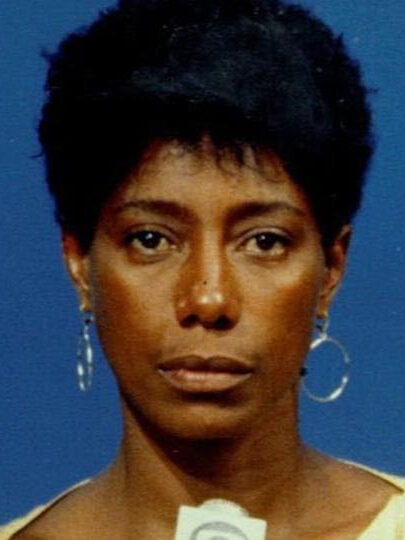 “Gloria Maria (pictured), one of Brazil’s pioneering TV journalists whose career took off in the early 1970s has passed away aged 73,” TRT World, based in Istanbul, Turkey, reported Friday. “Maria is remembered as Brazil’s first prominent Black female journalist in Brazil’s largely white-male media industry. Since the beginning of the year, Maria had reportedly been hospitalised in Rio de Janeiro, battling a brain tumour although the cause of her death was not revealed, according to news outlet Power360. . . .”
“Gloria Maria (pictured), one of Brazil’s pioneering TV journalists whose career took off in the early 1970s has passed away aged 73,” TRT World, based in Istanbul, Turkey, reported Friday. “Maria is remembered as Brazil’s first prominent Black female journalist in Brazil’s largely white-male media industry. Since the beginning of the year, Maria had reportedly been hospitalised in Rio de Janeiro, battling a brain tumour although the cause of her death was not revealed, according to news outlet Power360. . . .”
 “Rwandan authorities should allow an independent, impartial, and effective investigation, drawing on international expertise, into the death of John Williams Ntwali (pictured), a leading investigative journalist,” 90 civil society organizations and media associations said Wednesday. “Rwanda’s international partners should press the authorities to allow and cooperate fully with such an investigation.” Human Rights Watch and the National Association of Black Journalists are among those signing the declaration.
“Rwandan authorities should allow an independent, impartial, and effective investigation, drawing on international expertise, into the death of John Williams Ntwali (pictured), a leading investigative journalist,” 90 civil society organizations and media associations said Wednesday. “Rwanda’s international partners should press the authorities to allow and cooperate fully with such an investigation.” Human Rights Watch and the National Association of Black Journalists are among those signing the declaration.
‘[btnsx id=”5768″]
To subscribe at no cost, please send an email to journal-isms+subscribe@groups.io and say who you are.
Facebook users: “Like” “Richard Prince’s Journal-isms” on Facebook.
Follow Richard Prince on Twitter @princeeditor
Richard Prince’s Journal-isms originates from Washington. It began in print before most of us knew what the internet was, and it would like to be referred to as a “column.” Any views expressed in the column are those of the person or organization quoted and not those of any other entity. Send tips, comments and concerns to Richard Prince at journal-isms+owner@
View previous columns (after Feb. 13, 2016).
View previous columns (before Feb. 13, 2016)
- Diversity’s Greatest Hits, 2018 (Jan. 4, 2019)
- Book Notes: Is Taking a Knee Really All That? (Dec. 20, 2018)
- Book Notes: Challenging ’45’ and Proudly Telling the Story (Dec. 18, 2018)
- Book Notes: Get Down With the Legends! (Dec. 11, 2018)
- Journalist Richard Prince w/Joe Madison (Sirius XM, April 18, 2018) (podcast)
- Richard Prince (journalist) (Wikipedia entry)
- February 2018 Podcast: Richard “Dick” Prince on the need for newsroom diversity (Gabriel Greschler, Student Press Law Center, Feb. 26, 2018)
- Diversity’s Greatest Hits, 2017 — Where Will They Take Us in the Year Ahead?
- Book Notes: Best Sellers, Uncovered Treasures, Overlooked History (Dec. 19, 2017)
- An advocate for diversity in the media is still pressing for representation, (Courtland Milloy, Washington Post, Nov. 28, 2017)
- Morgan Global Journalism Review: Journal-isms Journeys On (Aug. 31, 2017)
- Diversity’s Greatest Hits, 2016
- Book Notes: 16 Writers Dish About ‘Chelle,’ the First Lady
- Book Notes: From Coretta to Barack, and in Search of the Godfather
- Journal-isms’ Richard Prince Wants Your Ideas (FishbowlDC, Feb. 26, 2016)
- “JOURNAL-ISMS” IS LATEST TO BEAR BRUNT OF INDUSTRY’S ECONOMIC WOES (Feb. 19, 2016)
- Richard Prince with Charlayne Hunter-Gault, “PBS NewsHour,” “What stagnant diversity means for America’s newsrooms” (Dec. 15, 2015)
- Book Notes: Journalists Follow Their Passions
- Book Notes: Journalists Who Rocked Their World
- Book Notes: Hands Up! Read This!
- Book Notes: New Cosby Bio Looks Like a Best-Seller
- Journo-diversity advocate turns attention to Ezra Klein project (Erik Wemple, Washington Post, March 5, 2014)

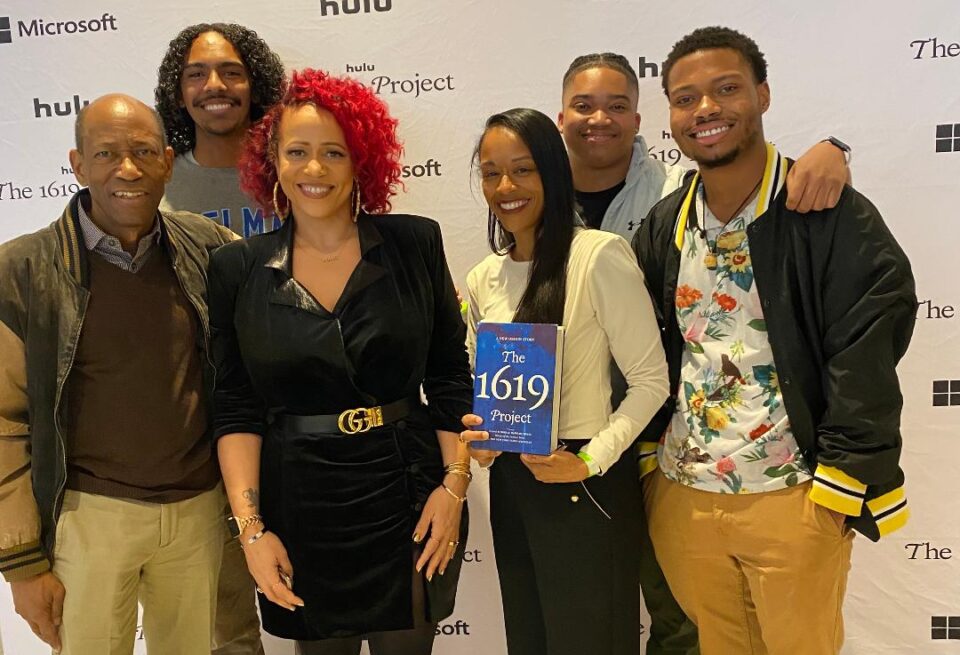
7 comments